Large swaths of the United States, as well as European countries (Spain, France, Italy, and Greece), are in the grips of extreme heat.
If you’re in an area with extreme heat, here are some pics to lighten your mood a little.
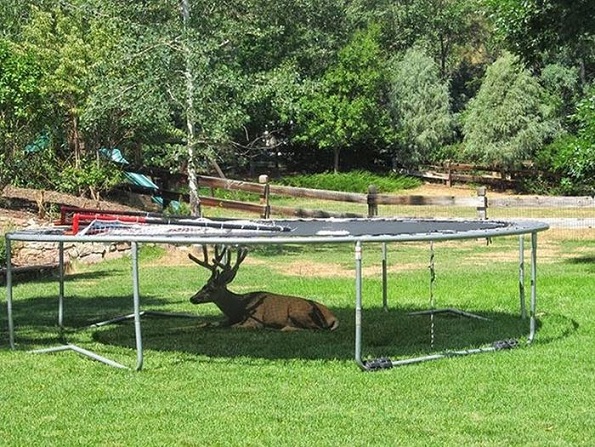

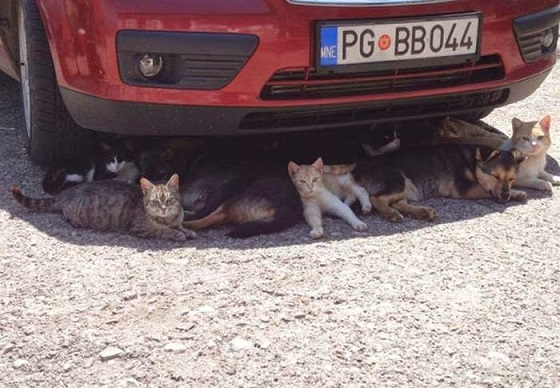


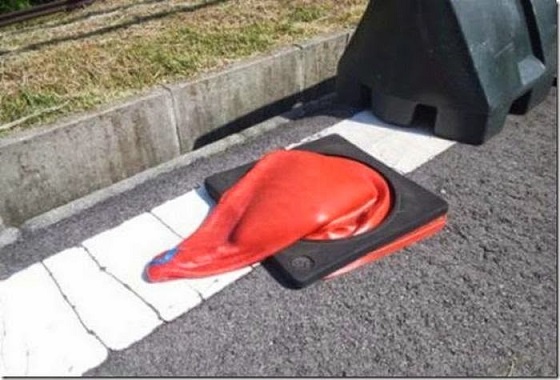
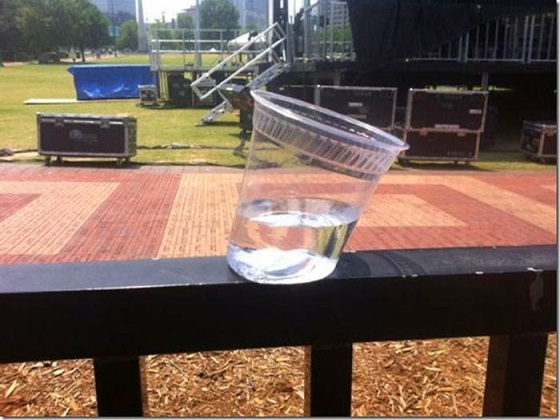
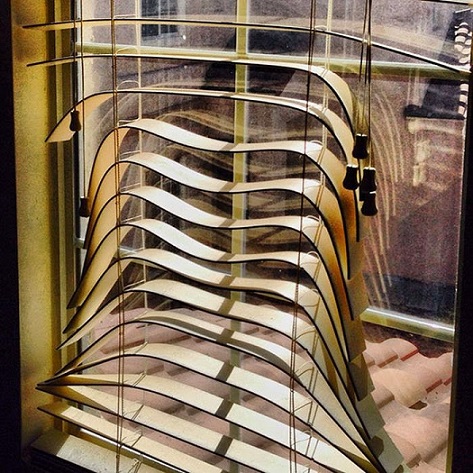
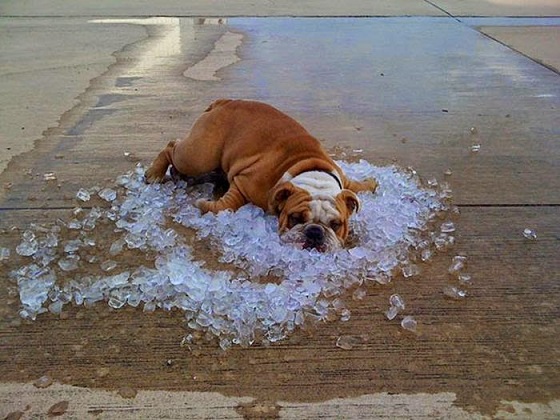
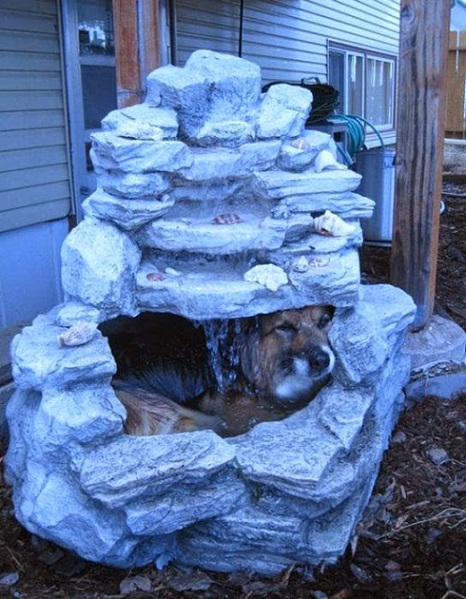
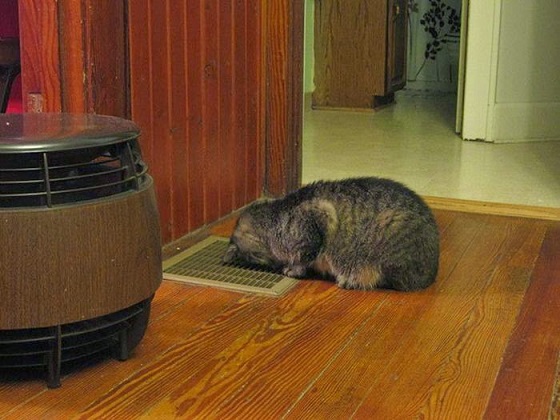
On a more serious note, if you’re in extreme heat, you need to take caution.
This is what extreme heat does to the human body (source: The Telegraph):
Professor Mark Whiteley, venous surgeon and founder of The Whiteley Clinic in London, explains: “We have to keep a consistent internal body temperature of 98.6°F degrees otherwise the enzymes in our cells and cell walls start changing shape and that can cause irreversible damage. Think of an egg white – once you cook it you see that protein turn white, and it won’t go clear again even if it cools down. If you get too hot the processes in your cells don’t work; that’s what kills you. Everything else from dehydration to vein dilation are secondary issues with their own side-effects. Once you get over about 107.6°F internally you get heatstroke. Your mental functions start shutting down and your cells stop working. Everything else you might notice about getting unwell in the heat is just the systems that are trying to keep you cool, failing one by one.”
Symptoms of heatstroke include a high body temperature (above 104°F), altered mental state, confusion, dizziness, hot and dry skin, rapid heartbeat, a loss of consciousness and, eventually, death.
High temperatures can place extra stress on the cardiovascular system, as the body works harder to cool itself down. This can lead to an increased heart rate, elevated blood pressure, and potentially exacerbate underlying heart conditions. In short, this means you’re much more likely to have a heart attack when you’re hot because when you get hot, your veins get very dilated, especially on your head and scalp, which is where you lose a lot of heat. This can cause veins to look bigger and the skin to look redder as the blood is diverted close to the surface to cool down. You’ll particularly notice this in your face because the body loses most heat from the head. More worrisome is the increased risk of blood clots when you’re very hot. When you’re dehydrated, water leaves the blood to be sweated out, so you get more cells in the blood, making it thicker and stickier, increasing the chance of a clot and a heart attack.
In extreme heat, the air can become dry, hot, and polluted. This can irritate the upper respiratory system and cause it to constrict and exacerbate existing respiratory conditions such as asthma. In extreme cases, this broncho-constriction can cause people to experience a shortness of breath because the irritation of the upper respiratory system is stopping the body from being able to transport as much oxygen to the lungs. In hot weather especially, the body trying to maintain a normal temperature requires extra oxygen, which can be dangerous, especially in people with asthma.
High temperatures can also impair cognitive function, affecting attention, memory, decision-making, and concentration. Heat-related cognitive impairment can lead to decreased productivity, impaired judgment, and increased risk of accidents or mistakes. As the body tries to divert blood to the skin to cool down, the brain is getting less than it needs. Sweating causes the body to lose vital minerals such as salt and electrolytes, which are required for sending signals to the rest of the body. If these nerves are less able to function, it can result in fatigue, decreased alertness, and overall mental and physical sluggishness.
The elderly, young children and individuals with medical conditions can be far more susceptible to extreme heat because they have a less efficient thermoregulatory system, which makes them more prone to dehydration.
What to do?
- Stay out of the heat! Stay indoors, ideally air-conditioned. And don’t be an idiot by actually exercising outdoors like this 71-year-old man who hiked 4 miles in 120°F Death Valley, and promptly dropped dead (video below).
- Stay hydrated by drinking water.
- Replenish your electrolytes by consuming foods naturally rich in potassium, magnesium, and sodium, such as bananas, avocados, coconut water, leafy greens, and natural sea salt.
~E

I think this article points out excellent ways that will help us from being a statistic due to extreme heat.
It is sad that the hiker who decided to venture out in Death Valley in such extreme heat just was not really thinking about the consequences. I do feel very sorry for his wife, family and friends.
So true people don’t think before they do sometimes and the out come is not good.
Thanks for this article & for the suggestive pictures. As for me, during tomato bonanza season, which coincides with torrid time of year here, I prepare/dehydrate “sun dried” tomatoes on a tray in the back window of my parked 3rd old car (the one we keep just to take pets to the vet or do dirty chores). It works great. No electricity, no bugs, pretty quick (abt 5 or so hours) & pretty logical. Dry leather-sticky-hard, throw into sandwich bag. Use within a month or so….or, as I do…throw bag into the freezer (this little bag might have as many as 20 tomatoes in it b/c of the way they reduce once sun-dried). Use them in soups, pasta dishes, sauces, stews, omelets, stir fry, tomato “gravy,” or even tomato tortes, all through the year.